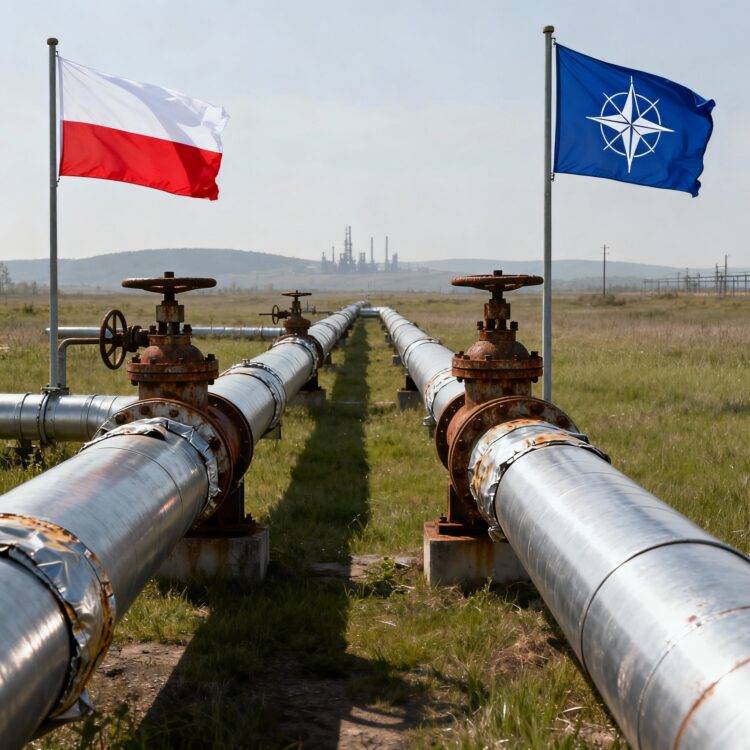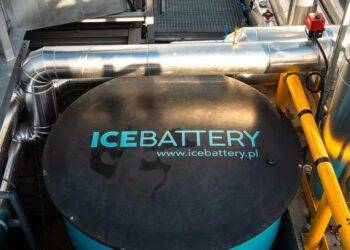A preliminary agreement to connect Poland to the NATO fuel pipeline network marks a significant step in strengthening the country’s energy security and military logistics, Polish officials announced Friday.
The accord, signed in Warsaw in the presence of Deputy Defense Minister Cezary Tomczyk, sets in motion a multi-billion-zloty project to extend the Central European NATO Pipeline System (CEPS) from its current endpoint in Germany into western Poland. The Polish segment is expected to run roughly 300 kilometers from the German border to the PERN storage facility near Bydgoszcz, serving as a key supply artery for both domestic infrastructure and NATO’s eastern flank.
“This is truly a great day for Poland, but it is also only the beginning of an important journey,” Tomczyk said immediately after the signing ceremony. “Today, we are taking the first step in a process that began as an idea 11 years ago. Now, it is a reality.”
The agreement was finalized between the NATO Investment Committee and the Polish pipeline operator PERN S.A., enabling integration of the Polish military’s fuel depots with the broader NATO supply system. It will also include new fuel storage installations designed to meet the needs of Allied forces on Polish territory.
A Decade-Long Effort
The groundwork for the agreement stretches back to 2014, following Russia’s annexation of Crimea and subsequent security realignments within NATO. According to Tomczyk, early discussions at the alliance’s working level planted the foundations for today’s project, with particular focus on incorporating countries that joined NATO in or after 1999 into the CEPS network.
NATO’s main headquarters, through the Alliance’s dedicated Resource Office, has now approved funding for the planning and design phase. Organizationally, the project will be managed by NATO’s Investment Division, which operates under the guidance of the Polish defense ministry.
“What we are talking about is one of the largest investments in Poland’s national security over the past three decades,” Tomczyk said.
Upon completion of the design and planning phase, the next milestone will require a unanimous decision from all NATO member states, a procedural requirement for projects utilizing joint Alliance funds. Only after that approval can full-scale construction begin.
A Project Worth 20 Billion Zloty
If the plan is carried to fruition, the entire enterprise is valued at approximately 20 billion zloty. The 300-kilometer-long pipeline expansion and requisite storage facilities are expected not only to bolster Poland’s energy independence but also to ensure uninterrupted fuel transport during crisis scenarios.
Currently, the NATO pipeline system ends in Germany, with Poland dependent on other means to supply its western military bases. Adding a direct link will streamline not just peacetime logistics but also Poland’s capacity to serve as a forward operating base for NATO forces.
“This is about securing not just our country, but the entire Alliance’s eastern border,” Tomczyk said.
The Broader Strategic Context
The enhanced infrastructure dovetails with other recent NATO and Polish defense initiatives directed at reinforcing Eastern Europe’s resilience to potential military threats. Polish officials say the planned pipeline will ultimately allow for more flexible response to emergencies and conflicts, creating redundancies previously absent in regional logistics.
Tomczyk underlined that the process from concept to execution had required “determination and persistence” at both Polish and international levels. He credited Poland’s diplomatic and military experts for overcoming obstacles to bring the project to the current stage.
Construction of Poland’s segment will start only after approval by the entire North Atlantic Council. If greenlighted, the country will take on a pivotal new role in NATO’s energy and defense infrastructure—a move Polish leaders hope will pay dividends for decades to come.


















